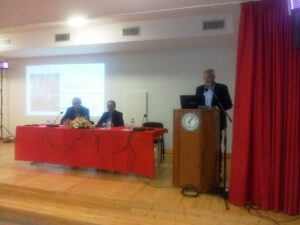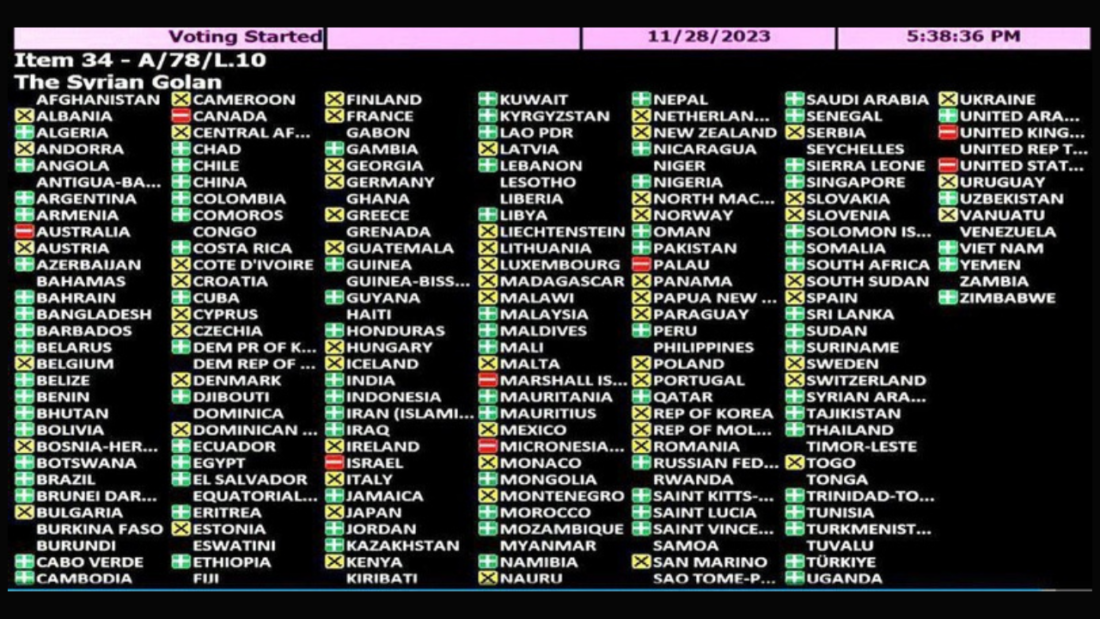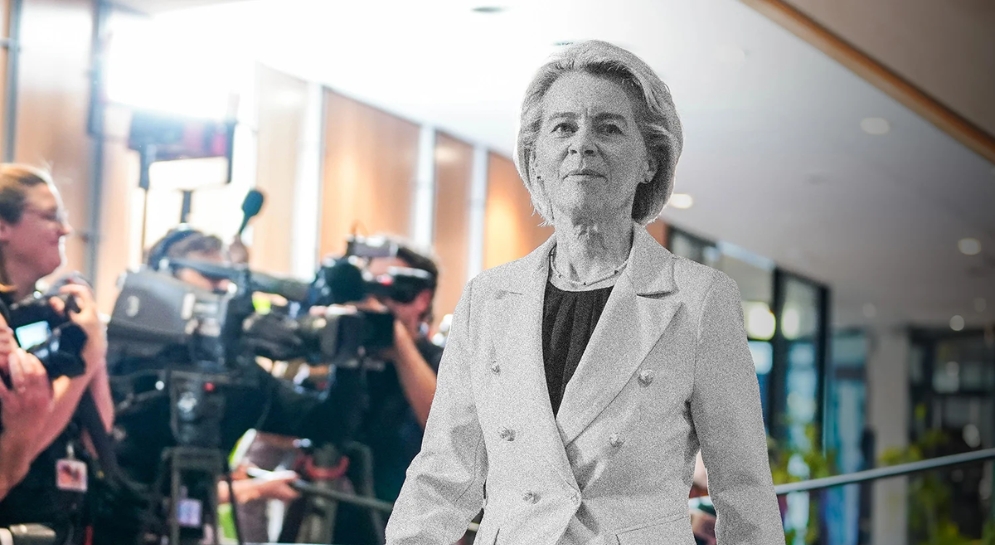
Address of Andros Kyprianou, General Secretary of the C.C. of AKEL, at the open discussion on “Social and political struggles in Belgium and Cyprus: the reality of the European Union”
Monday, 5th May 2015, Local Club “Promitheas”, Larnaca
 On behalf of the C.C. of AKEL, permit me to welcome to Cyprus and to our event this evening the President of the Workers’ Party of Belgium comrade Peter Mertens, as well as the delegation of the Party. I would like to thank both our District Organisations who willingly undertook the task of organizing, together with the International Relations Department of the Central Committee, this open debate.
On behalf of the C.C. of AKEL, permit me to welcome to Cyprus and to our event this evening the President of the Workers’ Party of Belgium comrade Peter Mertens, as well as the delegation of the Party. I would like to thank both our District Organisations who willingly undertook the task of organizing, together with the International Relations Department of the Central Committee, this open debate.
The Workers Party of Belgium and AKEL are connected by a common ideological approach, as well as by our faith in the ability of working people to reverse injustice and march together with society to bring a world of social justice; the world of socialism. We share a common understanding of the current tasks of our Parties to organize the resistance against the anti-people’s, neoliberal policies against our peoples and more specifically against working people.
The invitation we had addressed to the Worker’s Party of Belgium for a delegation at the highest level to pay a working visit to Cyprus was of course not accidental. This is a Party that is struggling in a country such as Belgium, which hosts the administrative capital of the European Union and NATO; a Party which participates with consistency and plays – within its capacities – a guiding role in the struggles of its people; a Party which carries out broader and scientific analyses of the problems caused to the peoples by the particular form of development of the European Union. Together, we want to share the analyses and positions of both of our Parties in order to further develop our bilateral relations.
I would like to recall with great respect that as AKEL does in Cyprus, so the Workers Party of Belgium as well, remains based on positions of principle fiercely opposed to nationalism, as well as to the dismemberment and division of Belgium. Furthermore, it is the only Party that develops its activity in a unified way all across the country. In itself this fact alone may be enough for the forces of the Right and the establishment to attack and pursue it.
After the outbreak of the capitalist crisis we are witnessing a period of profound contradictions. On the one hand the financial system is being bailed out from a collapse it itself has caused by shifting the burden on people’s backs. On the other, coordinated attacks are being carried out at the level of the European Union and Governments which aim to institutionalize the benefits of capital to the detriment of the peoples, workers and small/middle strata. This is precisely what a series of reforms since 2008 onwards have been aiming at. The revision of the Treaty of the European Union in 2009, the Pact for the Euro, the so-called Single Economic Governance, as well as the policies contained in the regulations for the European Semester, are aiming to fulfil two main objectives.
The first is to transfer more and more power to the reactionary Directorate of Brussels which its takes decisions according to the measures of the dominant states and monopolies.
The second is to consolidate in the countries that represent the “weakest link” a regime that controls and takes away their sovereignty; to adopt a new form of colonialism and dependency from the lenders whose composition is always headed by European and international capital, as expressed by the International Monetary Fund and the banks, but also by their political representatives.
Faced with this given situation and operating in conditions imposed by the Memorandum with the Troika, a just solution for the peoples is not possible. It is not by chance that from time to time conflicts are observed between different decision-making centres. Others support the continuation of the path making austerity policy even more severe and others its relaxation. Some circles and forces recognizing the cost of the mass poverty resulting from the vicious austerity policies are trying to ensure some relaxation in austerity policy. However in reality, the empire of capital’s greed within the European Union, namely the German model that has been imposed with the consensus of both the Right and Social democracy, cannot be reformed between the elite. Real hope can be created through the struggle of the peoples and the Parties of our type which challenge in practice the dominant ideology of the unbridled market economy and the Pandora’s Box of oppression that it has unleashed. It is for this reason that AKEL is struggling with consistency to create on a European level the preconditions for the effective challenging of the ruling policies to the benefit of the peoples.
These conclusions for us are not an excuse not to wage the struggle for immediate tasks and demands. As a consequence, we have tabled a host of proposals in Parliament which we have also shared with the people; proposals to protect the primary family residence and small business premises from the insatiable drive of the Troika and Government against the common people who because of the crisis cannot pay off their loans; proposals that were approved in principle for the reduction of rents, as well as others regarding the reduction of interest rates and the abolition of abusive charges by the banks, which the President of the Republic and his party fought against to the very end.
In Cyprus’ case, as in other countries too, we have to confront the policies of a deliberately re-generated crisis involving policies destroying the standard of living of the majority of the people. These policies include the privatization of public utility organisations that will mean the transfer of public wealth and assets to a handful of private interests, including foreign trusts and monopolies which, in combination with the upcoming foreclosures of ordinary people’s properties, constitute a devastating mixture of anti-social anti-people’s policies. Factors that must be taken into account in order to form a comprehensive picture of the dead-end in the Cyprus economy is, in addition, the destruction of the financial sector and the international services they, rightly or wrongly constituted. The undermining and curbing of the Cooperative Movement as dictated by the Memorandum and the haircut/levy on bank deposits, developments which, in conjunction with the decline in consumer demand and the austerity imposed, have made Cyprus a guinea pig of the policies of the European Union ruling circles and the International Monetary Fund.
Having said all this, we need to acknowledge a real existing problem. A crisis of confidence in political parties in general, which also affects AKEL, has developed in society. With great efforts we manage to organize mobilizations with the class-based trade union movement playing the pivotal role. Correct policies and steadfastness is required so that we can win back the trust of the people to the extent that we had in the past.
To address these problems, we need an all-round comprehensive alternative proposal; a proposal which our forthcoming 22th Congress will seek to enrich. Our goal is to establish AKEL as the backbone of society that is struggling to get rid of the shackles of the Memorandum and its provisions. These shackles, as demonstrated by the experience in other countries as well, do not end with the official completion/termination of the Memorandum in one or two year’s time. These chains will continue because of the loan agreement, but also because of the legislation of the EU which states that until 75% of their debt is repaid then the states will be under supervision. This is precisely the reason why international cooperation and the policy of rupture with these policies have never been so timely for the peoples.
To conclude, I would like once again to thank the President of the Workers’ Party of Belgium comrade Peter Mertens and his delegation for the visit and to hand him the baton to outline and present his positions.







